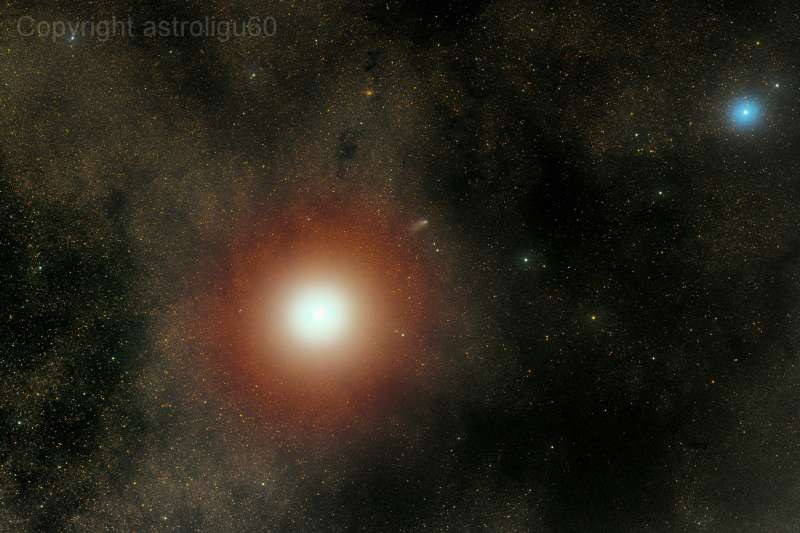
|
Credit & Copyright: Rolando Ligustri
(CARA Project,
CAST)
Explanation:
October 31, 1938 was the day after Martians encountered planet Earth,
and everything was calm.
Reports of the invasion were revealed to be part of a
Halloween radio drama, the now famous broadcast
based on H.G. Wells' scifi novel
War of the Worlds.
On Mars October 20, 2014 was calm too,
the day after its close encounter with
Comet
Siding Spring (C/2013 A1).
Not a hoax, this comet really did come within 86,700 miles or so of
Mars, about 1/3 the Earth-Moon distance.
Earth's
spacecraft and rovers in Mars orbit and on the surface
reported no ill effects though, and
had a ringside seat as a visitor from the
outer
solar system passed by.
Spanning over 2 degrees against stars of the constellation Ophiuchus,
this colorful
telescopic snapshot captures our view of Mars on the day after.
Bluish star
51 Ophiuchi is at the upper right and
the comet is just emerging from the Red Planet's bright glare.
|
January February March April May June July August September October November December |
| ||||||||||||||||||||||||||||||||||||||||||||||||
NASA Web Site Statements, Warnings, and Disclaimers
NASA Official: Jay Norris. Specific rights apply.
A service of: LHEA at NASA / GSFC
& Michigan Tech. U.
Based on Astronomy Picture
Of the Day
Publications with keywords: Mars - comet
Publications with words: Mars - comet
See also:
